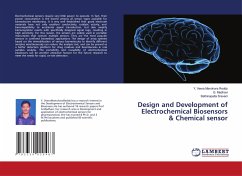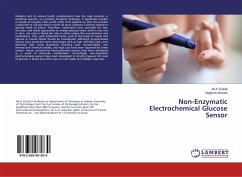Electrochemical sensors require very little power to operate. In fact, their power consumption is the lowest among all sensor types available for biomolecules monitoring. It is very well established that good electrode materials have not only excellent conductivity, catalytic activity, and biocompatibility to accelerate signal transduction, but also amplify biorecognition events with specifically designed signal tags, resulting in high sensitivity. For this reason, the sensors are widely used in portable instruments that contain multiple sensors. They are the most popular sensors in confined biomedical applications. The design of array systems based on the immobilization of various biomolecules to identify different analytes simultaneously can reduce the analysis cost, and can be proved as a better detection platform for drug residues and biomolecules in real samples analysis. The portability and reusability of electrochemical biosensors can be another attractive feature for the future research to meet the needs for rapid, on-site detection.
Bitte wählen Sie Ihr Anliegen aus.
Rechnungen
Retourenschein anfordern
Bestellstatus
Storno








